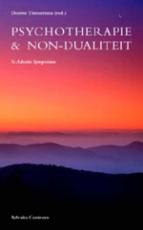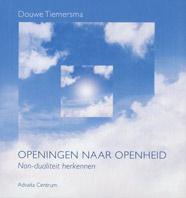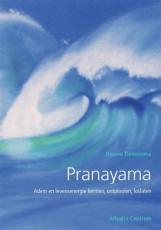Advaita Post 11 - 17 - Dying is not suffering...
Volume 11 No. 17 (November 3, 2010)
--- Dying is not suffering, if you are aware of the ultimate openness as your most intimate nature ---
What are you really?
From the Anubhavamrta of Jnanadeva
on the unity of subject and object
She is the body of her lover
Her lover is the gracefulness of her being
They revel in each other
Completely transposed into one another
As wind is infused with movement
And there is no gold without glow
Thus, Shiva and Shakti
Are one whole
Touch for the hand
An image for the eye
Sweet food for the tongue
That is the One ... ..
That moment that the senses
Connect to an object
At that moment
They become one…
Here motives disappear
But no one turns away
Everything changes
In Self-experience
You can read more on the website (in Dutch): Jnanadeva, Anubhavamrta
*
Death and Dying
The subject of death and dying has been raised in different contexts recently. The following are a few comments on the subject, first about heaven and hell, then about openness.
Everything that we can say about dying and death in human terms, applies to the process surrounding death. Relative to dying, there is a clear understanding that holding on creates suffering and that surrender means freedom from suffering.
What else is there to say? From the standpoint of people who cling to the material form and the standard temporal viewpoint everything stops when the organism is dead. But there are experiences of situations in life and also meditative experiences that have to do with going beyond forms and concepts. So there is still something that can be said. There are the 'after death' experiences of being absorbed into a heavenly sphere, but also the sufferings of hell.
The contents of such experiences have an eternal dimension. That’s why there are the concepts of an eternal heaven and hell. Are the experienced heaven and hell eternal, or is the experience of it only temporal within the transition of the falling away of everything?
The point is that the experienced time surrounding dying is no longer stable. At first time is partially gone. Then there is the experience of a sphere with a dimension of eternity. The experience changes so fundamentally. The experienced world changes fundamentally.
You can't just indicate it psychologically as many people do. It's about an authentic manner of experiencing an actual reality that you can't just psychologise away. If you do, you erect in a very uncritical and short-sighted way your own worldview as absolute. There are realms of experience that cannot be experienced within in the categories of dualistic existence. From the state of 'eternity', the world of 'standard time' is experienced as just a small province. Only for the people living in that province is time measured by the clock, and nothing else remains after death than the material residue and memories. It's about an expanded way of experiencing and a more spacious reality in which the limited way of experiencing the world has a restricted place.
Even the experience of 'eternal', of a heavenly and a hellish sphere, are still derived from the experience of worldly impermanence and worldly situations. The process will continue further after the physical death, beyond heaven and hell, to an empty sphere like that of the dreamless sleep and towards the absorption of that state into the absolute.
About the absolute, that is to say, totally independent from the known world, there is nothing that can be said. From the perspective of the known, it is nothing. So after death there is nothing of you remaining. But this nothing is the nothing from the world of something. In itself, it is total openness about which nothing can be said, but of which nevertheless already during your lifetime there can be a particular kind of experience. The experience is that openness which always already is your own source and most intimate nature. During your lifetime you can become aware of it. Then dying is not suffering any longer.
Sincerely,
Douwe Tiemersma
Er is geen tweeheid
als je ontspannen bent
in zelf-bewustzijn
is dat duidelijk.
Boeken
Douwe schreef en redigeerde gedurende zijn leven boeken. Via onze uitgeverij zijn deze nog verkrijgbaar.



